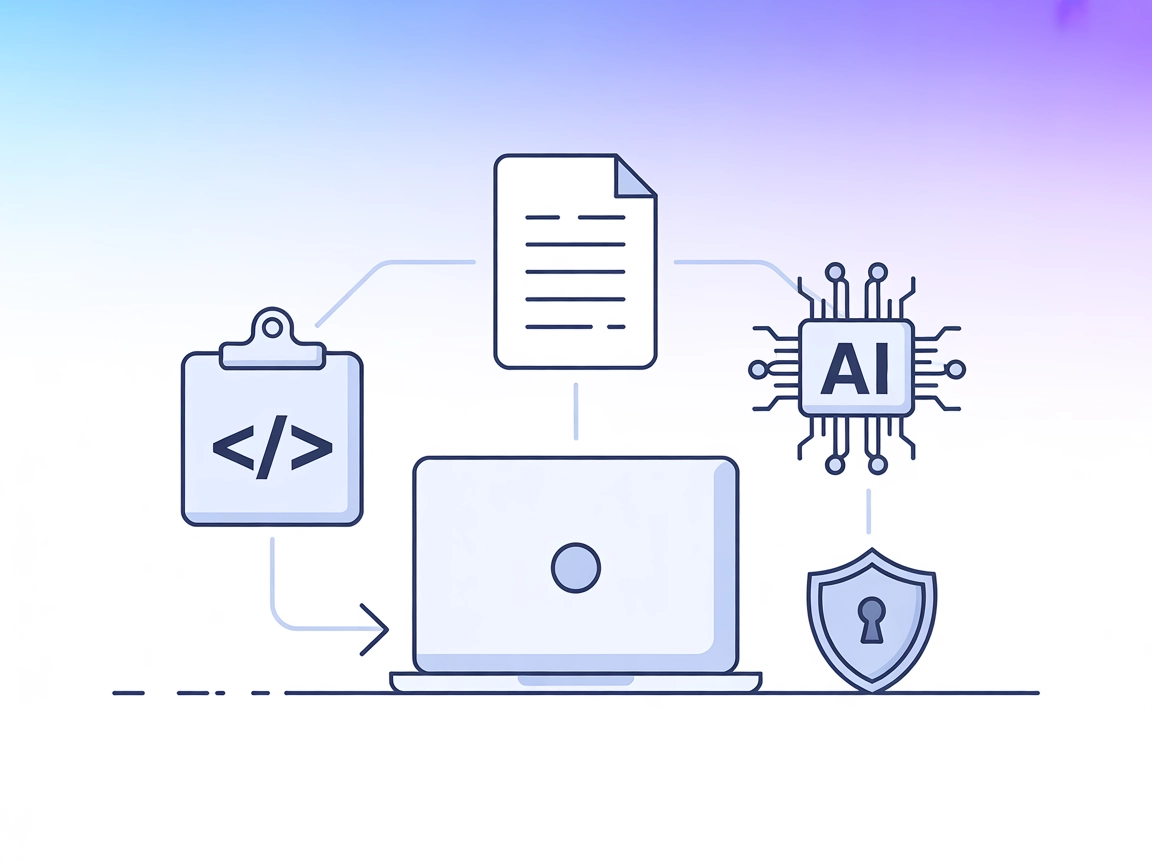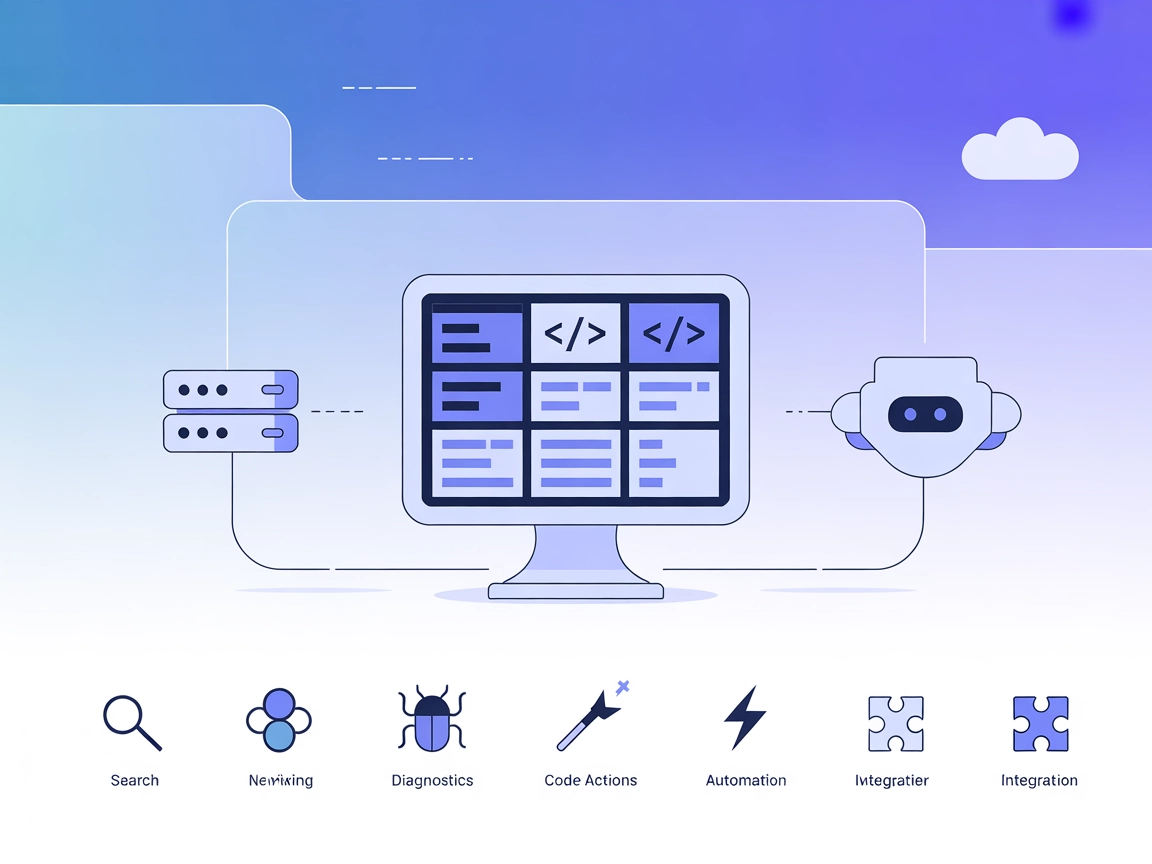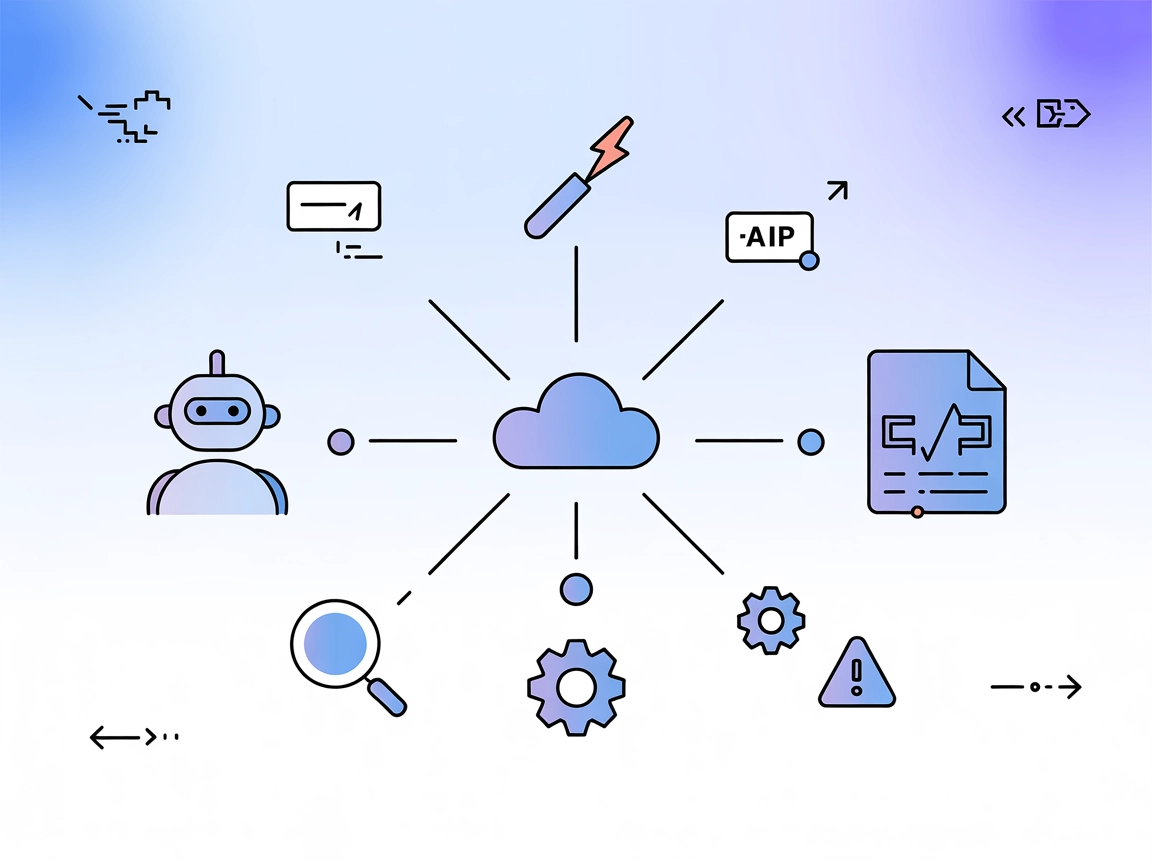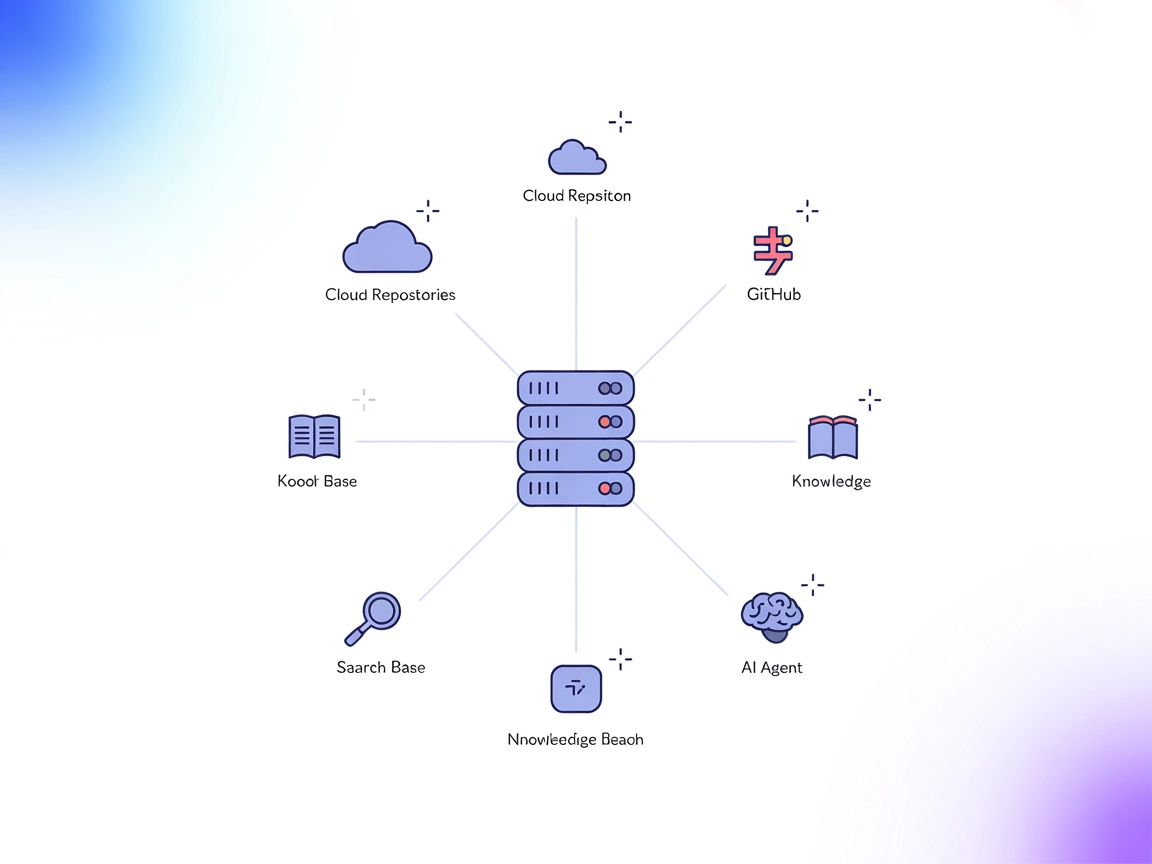
LLM Context MCP Server
The LLM Context MCP Server bridges AI assistants with external code and text projects, enabling context-aware workflows for code review, documentation generatio...

Unlock advanced code intelligence in FlowHunt with the LSP MCP Server—enabling AI-powered code navigation, diagnostics, completions, and integrated developer workflows.
FlowHunt provides an additional security layer between your internal systems and AI tools, giving you granular control over which tools are accessible from your MCP servers. MCP servers hosted in our infrastructure can be seamlessly integrated with FlowHunt's chatbot as well as popular AI platforms like ChatGPT, Claude, and various AI editors.
The LSP MCP (Model Context Protocol) Server acts as a bridge between Language Server Protocol (LSP) servers and AI assistants. By connecting to an LSP server, it enables LLMs and other AI clients to interact with codebases through standardized LSP features. This allows AI tools to perform advanced code analysis, fetch hover documentation, receive code completion suggestions, access diagnostics, and even apply code actions directly inside an editor or development workflow. The LSP MCP Server enhances developer productivity by facilitating seamless AI-driven interactions with source code, making tasks like code navigation, error resolution, and intelligent code completion more accessible and automated.
No explicit prompt templates are listed in the repository or documentation.
lsp-diagnostics://lsp-hover://lsp-completions://get_info_on_locationget_completionsget_code_actionsopen_documentclose_documentget_diagnosticsstart_lsprestart_lsp_serverset_log_levelmcpServers section:{
"mcpServers": {
"lsp-mcp": {
"type": "stdio",
"command": "npx",
"args": [
"tritlo/lsp-mcp",
"<language-id>",
"<path-to-lsp>",
"<lsp-args>"
]
}
}
}
mcpServers section:{
"mcpServers": {
"lsp-mcp": {
"type": "stdio",
"command": "npx",
"args": [
"tritlo/lsp-mcp",
"<language-id>",
"<path-to-lsp>",
"<lsp-args>"
]
}
}
}
claude --mcp-debug for logs.{
"mcpServers": {
"lsp-mcp": {
"type": "stdio",
"command": "npx",
"args": [
"tritlo/lsp-mcp",
"<language-id>",
"<path-to-lsp>",
"<lsp-args>"
]
}
}
}
{
"mcpServers": {
"lsp-mcp": {
"type": "stdio",
"command": "npx",
"args": [
"tritlo/lsp-mcp",
"<language-id>",
"<path-to-lsp>",
"<lsp-args>"
]
}
}
}
Securing API Keys
If the LSP server or MCP setup requires API keys, use environment variables for security:
{
"mcpServers": {
"lsp-mcp": {
"type": "stdio",
"command": "npx",
"args": [
"tritlo/lsp-mcp",
"<language-id>",
"<path-to-lsp>",
"<lsp-args>"
],
"env": {
"API_KEY": "${LSP_API_KEY}"
},
"inputs": {
"api_key": "${LSP_API_KEY}"
}
}
}
}
Using MCP in FlowHunt
To integrate MCP servers into your FlowHunt workflow, start by adding the MCP component to your flow and connecting it to your AI agent:

Click on the MCP component to open the configuration panel. In the system MCP configuration section, insert your MCP server details using this JSON format:
{
"lsp-mcp": {
"transport": "streamable_http",
"url": "https://yourmcpserver.example/pathtothemcp/url"
}
}
Once configured, the AI agent is now able to use this MCP as a tool with access to all its functions and capabilities. Remember to change “lsp-mcp” to whatever the actual name of your MCP server is and replace the URL with your own MCP server URL.
| Section | Availability | Details/Notes |
|---|---|---|
| Overview | ✅ | Overview present in README.md |
| List of Prompts | ⛔ | No prompt templates mentioned |
| List of Resources | ✅ | Diagnostics, hover, completions resources documented |
| List of Tools | ✅ | 8 tools: get_info_on_location, get_completions, etc. |
| Securing API Keys | ✅ | Example for env vars present |
| Sampling Support (less important in evaluation) | ⛔ | No mention of sampling support |
The LSP MCP Server provides comprehensive documentation, a range of tools and resources for LSP interaction, and good setup instructions. However, it lacks explicit support for prompt templates and makes no mention of sampling or roots support. Overall, it’s solid for codebase and LSP integration but might benefit from more advanced MCP features.
Rating: 7/10
| Has a LICENSE | ✅ (MIT) |
|---|---|
| Has at least one tool | ✅ |
| Number of Forks | 4 |
| Number of Stars | 42 |
The LSP MCP (Model Context Protocol) Server bridges AI assistants and Language Server Protocol servers, allowing AI tools to interact with codebases using standardized LSP features. This enables code analysis, completion, diagnostics, and code actions directly in editors and workflows.
It enables code navigation, real-time diagnostics (errors/warnings), code completion, hover documentation, and automated code actions, making developer workflows more productive and AI-driven.
Add the MCP component to your FlowHunt flow and configure it with your LSP MCP server details. This makes the server's tools available as part of your AI agent's capabilities.
Yes, it is MIT-licensed and available for integration in your projects.
Yes, you can configure sensitive values like API keys using environment variables in the MCP server configuration.
Integrate the LSP MCP Server into FlowHunt to enable AI-driven code exploration, error detection, and smart code completions directly in your workflows.

The LLM Context MCP Server bridges AI assistants with external code and text projects, enabling context-aware workflows for code review, documentation generatio...

The Lean LSP MCP server bridges AI assistants and Lean Theorem Prover projects using the Language Server Protocol, enabling agents to access diagnostics, goal s...

Lspace MCP Server is an open-source backend and standalone application implementing the Model Context Protocol (MCP). It enables persistent, searchable knowledg...
Cookie Consent
We use cookies to enhance your browsing experience and analyze our traffic. See our privacy policy.